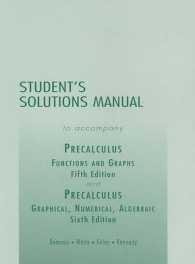Full Description
The two-volume set, LNCS 15913 and 15914, constitutes the refereed conference proceedings of the 8th International Conference on Innovative Technologies and Learning, ICITL 2025, held in Oslo, Norway, during August 5-7, 2025.
The 82 papers included in these proceedings were carefully reviewed and selected from 214 submissions.








